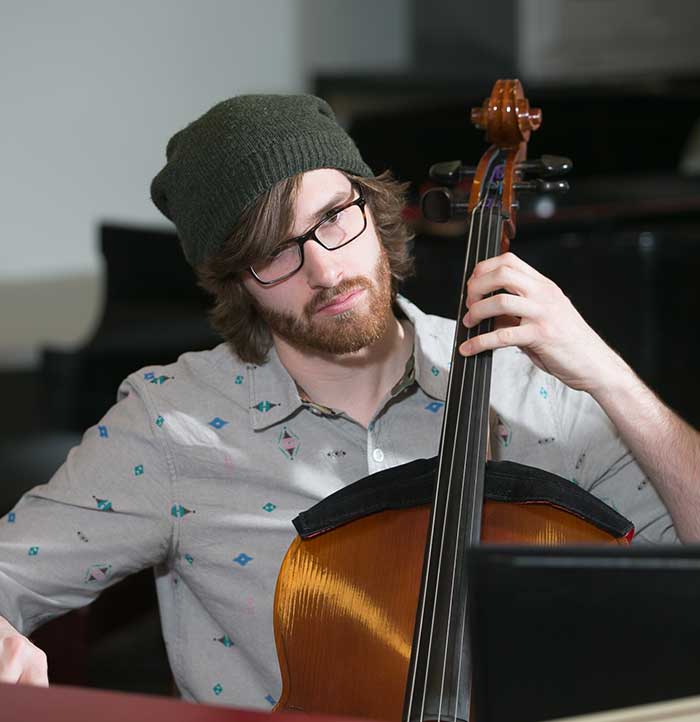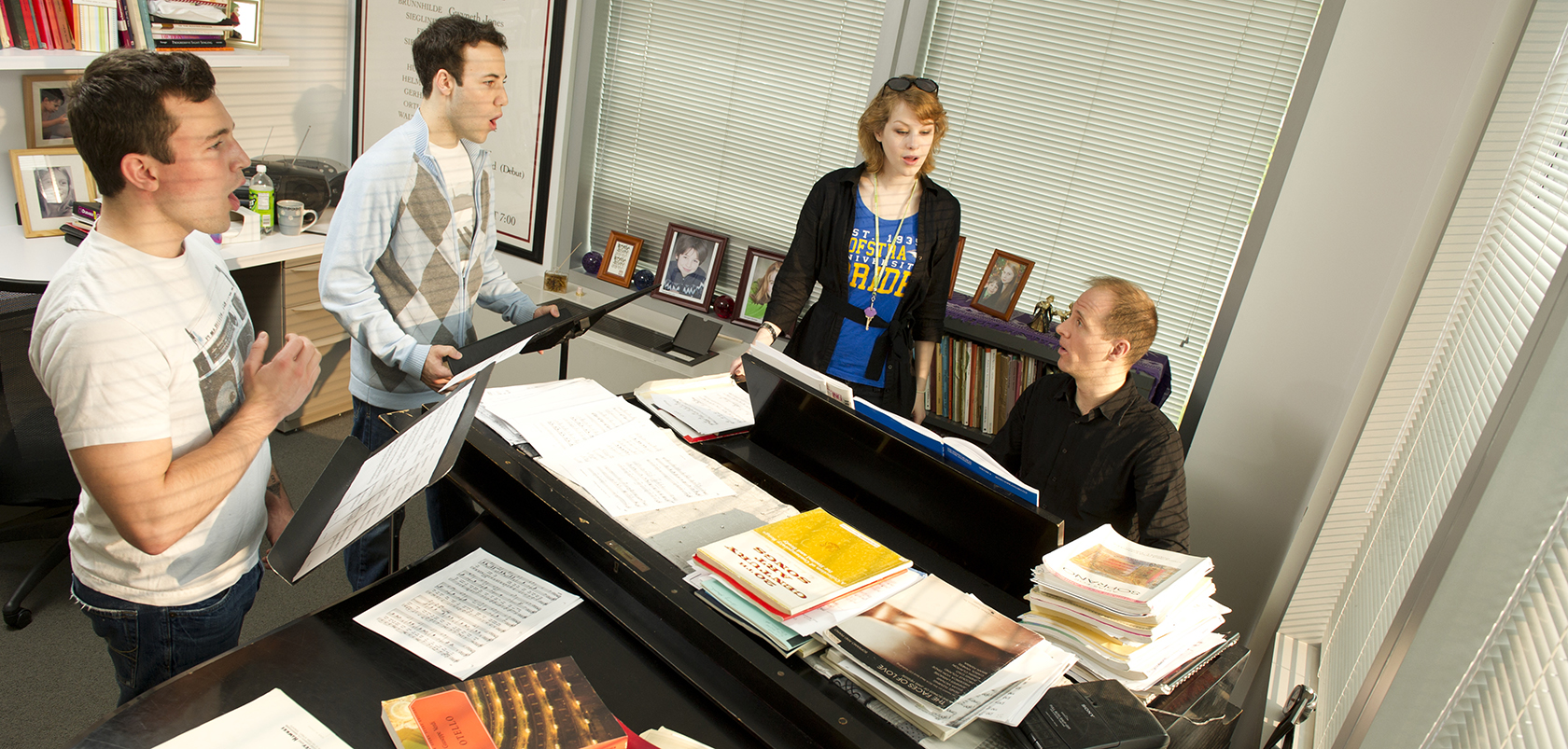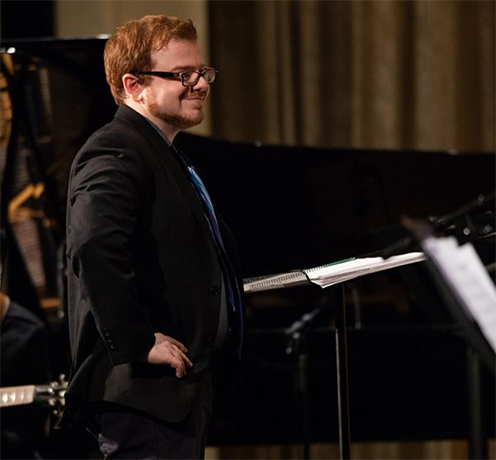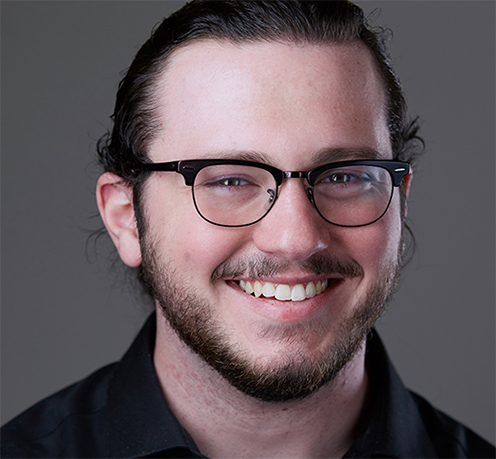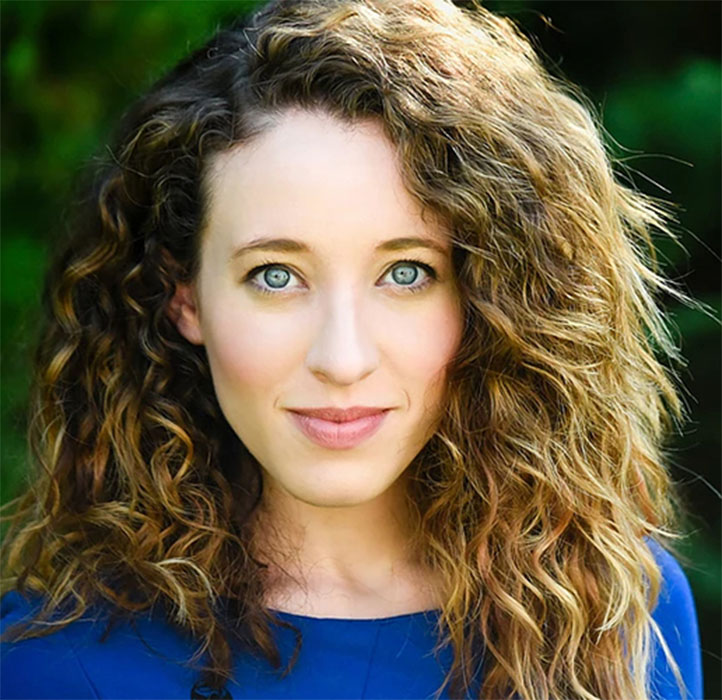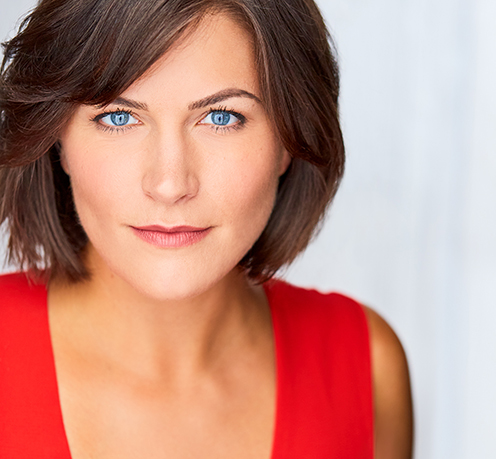Do you remember the excitement of your first school concert or your performances in a band or choir? Do you aspire to be like the music teachers who inspire you? Develop the knowledge, skills, and experiences required for an exciting career as a music educator in pre-K through grade 12 public, private, or parochial schools.
The BSEd in Music Education conforms with the National Standards for Arts Education and the New York State Learning Standards for the Arts. You will graduate with initial certification as a teacher of music in New York state, ready to work with instrumental, choral, and general music students in preK-12.
Program Overview
The foundation of this program is the core music curriculum centered on music theory, history, performance studies, and lesson requirements, including participation in major ensembles and chamber ensembles. You will also take fundamental courses in educational philosophy and pedagogical studies so you may excel as a teacher in a variety of settings - from the elementary music classroom to the high school concert stage.
You will also complete fieldwork in a variety of classroom settings across a range of grade and ability levels, as well as student teaching assignments.

Making Music
In addition to their coursework, students are required to join one major ensemble and one chamber group each semester; most students take advantage of the wide spectrum of experiences available and join many more.
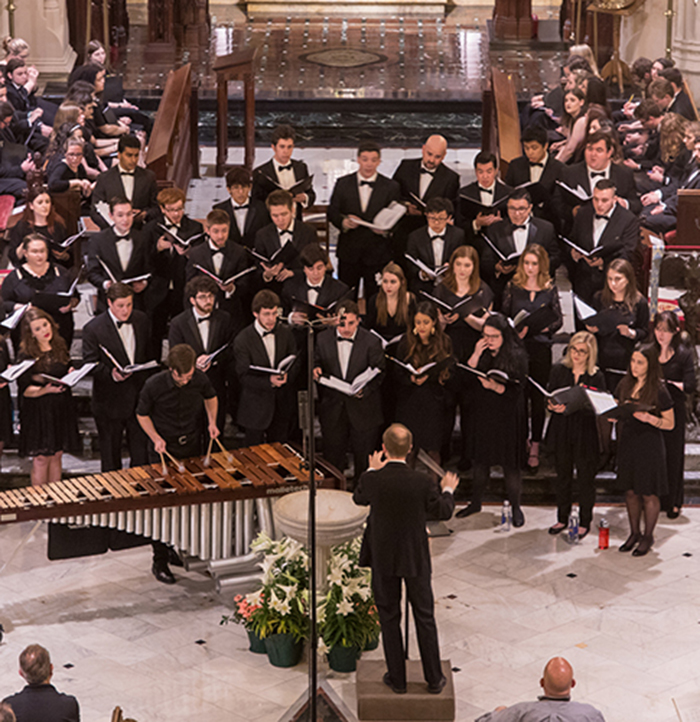
Hofstra's large ensembles include the Symphonic Band, Symphony Orchestra, Chamber Orchestra, University Mixed Chorus, Wind Ensemble, and Chorale. The small ensembles focus on particular instruments, genres, and time periods. They include the Hofstra Collegium Musicum, which performs as part of our annual Shakespeare Festival; the Tuba/Euphonium Ensemble, which performs an OcTubafest concert every fall; the Woodwind Ensemble; the Chamber Choir; the Brass Ensemble; Vocal Jazz; Hofstra Opera Theater; and many others.
Select student performers also have opportunities to present solo and group recitals.
Other performance opportunities are available through the program in Sikh Musicology and Hofstra Opera Theater, which presents a fully- staged opera every year, with all leads and choral members cast from the undergraduate population.
Our Community
The Music Department at Hofstra is a tight-knit community; classes, rehearsals, and private lessons fill the lives of most music majors. Clubs and extracurricular activities offer students additional opportunities to perform, network and socialize.
Professional Organizations for Music Education
Hofstra has student chapters of professional organizations helpful to Music Education majors: ASTA (American String Teachers Association), NAfME (National Association for Music Education), and ACDA (American Choral Directors Association). Hofstra students also assist when the University hosts regional events for NYSSMA (New York State School Music Association).
Go A Cappella
Hofstra has a number of competitive a cappella singing groups, including Sigma'Cappella, The Hofbeats, Makin' Treble, Chai Notes, and The Dutchmen. The Hofstra Gospel Ensemble and The SOS Brigade are also for music-minded students.
Behind the Scenes
MEISA (Music and Entertainment Industry Student Association) plans an annual conference that brings in professionals to network and speak about different aspects of the music industry.
Unispan Records, Hofstra’s student-run record label, is supervised by the Center for Entrepreneurship. Students get real-life experience finding artists, recording, producing, promoting, and distributing music, while receiving mentorship from music industry professionals.
In the Classroom
Learn from the Experts
Among our professors, you will find Emmy and Academy award-winning professionals who continue to perform, record, and publish. You may have seen them at the American Symphony Orchestra, Birdland, Brooklyn Harmonic, Blue Note Café, Carnegie Hall's Weill Recital Hall, and in countless Broadway musicals. In fact, the coordinator of our music business program is a record label veteran credited with discovering and signing Grammy Award-winning artist John Legend.
Our professors have won awards for their teaching - like the George M. Parks Award for Leadership in Music Education - and written acclaimed textbooks for music educators. One senior member of the faculty is known internationally for his collaboration with Robert A. Moog on the development of the Moog Synthesizer in 1964.



Fieldwork/Student Teaching
The Office of Field Placement is the crown jewel of Hofstra’s School of Education, offering support as students navigate their requirements for field observations, clinical experiences, and student teaching. Students enrolled in programs that lead to New York state teaching certification are required to complete a minimum of 100 hours of fieldwork prior to the student teaching experience.

Facilities and Resources
Joseph G. Shapiro Family Hall is home to the Department of Music faculty studios and state-of-the-art large rehearsal spaces. The Daniel L. Monroe Lecture Center houses additional studios and classrooms, rehearsal rooms, and the Music Library, which supports the curriculum of the Department of Music by providing scores, study space, and listening material.
Our performance spaces include the 377-seat Helene Fortunoff Theater (for recitals and chamber group performances) as well as the 1,105-seat Toni and Martin Sosnoff Theater at the John Cranford Adams Playhouse (for our major ensembles).

During Crisis, Finding the Teachable Moments
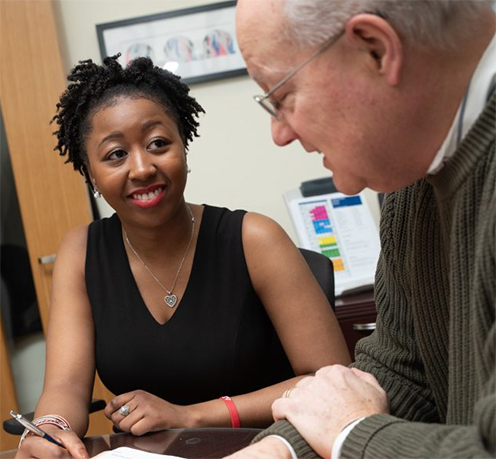
When New York schools closed statewide in March 2020 to slow the spread of the novel coronavirus, Hofstra’s School of Education had approximately 135 student teachers placed throughout Long Island and the New York metropolitan area. Jay Lewis, Associate Dean for External Relations, Field Placement and Recruitment, believed his aspiring teachers could be a critical resource as schools made the transition to digital learning. He started working the phones, making calls to contacts in local school districts to make sure his students could continue their placements.
The result? 100 percent of Hofstra student teachers continued to teach online.
The Outlook
In a survey of recent graduates:
- 86% reported they were working or enrolled or planning to attend graduate school within a year of graduation
- 100% of those students who reported employment said they that they had secured their position within three months of graduation.
- $52K was the reported mean annual salary of these alumni during the first year following graduation.
